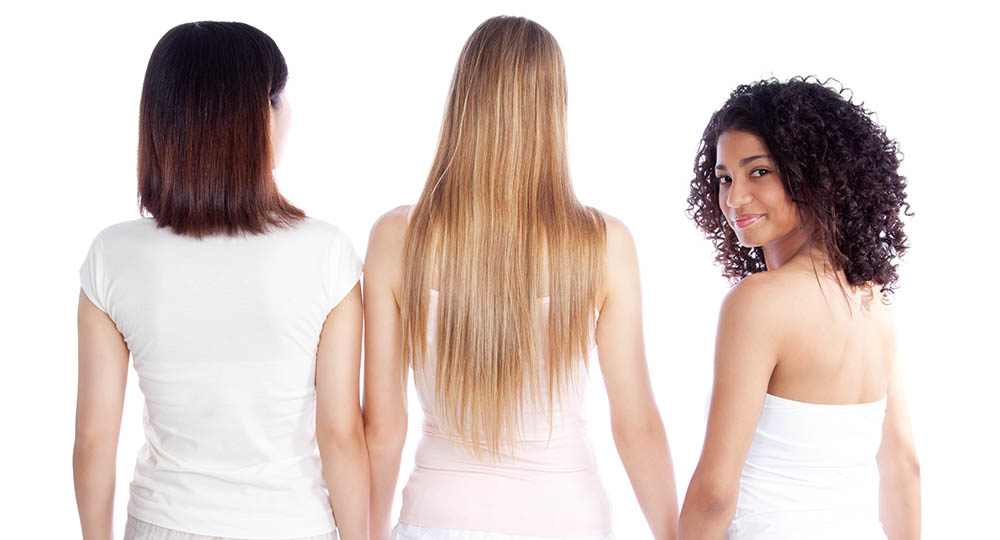Updated post: April 2021
As we update this post on haircare trends for 2021, you would be right to guess that one year on from the start of the Covid-19 pandemic we have changed our haircare habits along with our change in social behaviour. Hours in front of screens, incessant Zoom calls and periodic lockdowns preventing us from heading to hair salons, let alone socialising, have all had a knock-on effect on our beauty habits – prime among which is haircare.
When we launched our Diploma in Organic Haircare Formulation in 2017, we knew that we were going to be pioneers and also need to introduce our community of skincare formulators to the benefits of branching out to formulate high-performance, organic haircare. But little did we know back then, just how important haircare would be as we live the new normal.
With far less focus on our faces thanks to mask wearing, hair health and styling came to prominence in 2020 and continue to be the beauty stories of 2021. The “OMG, fix my hair!” movement is big right now. Even before this Covid effect on haircare, the sector was set to experience a global surge. Now, there are even more opportunities for organic formulators to get creative with on-trend haircare products and lines.
According to the Hair Future Forecast from Pretty Analytics, a global beauty industry research firm, “The global haircare market is expected to reach US$105.3 billion by 2024, with a forcasted annual growth rate of 3.0% up to 2024”.
Pretty Analytics predicted emerging markets as set for the largest growth in the haircare products’ market, which is good news for our global student community. This could be the year to start formulating advanced organic haircare products.
While market growth figures are all very well, what do they mean in terms of new products, consumer preferences and habits in haircare, especially against the backdrop of Covid-19? In our research, we’ve picked up on some interesting haircare trends in 2021; many generated by our changed behaviour in a world facing lockdowns and social distancing as well as engaging in social justice movements.
To help make sense of the sector, we’ve compiled an overview of the main haircare trends of 2021 we feel natural, organic haircare formulators will be interested in.
Haircare Trends 2021: from the personal to the political
1. Hair and Scalp Health
With hair the focus of attention thanks to mask wearing, we are thinking far more about how to maintain healthy hair and fix hair issues. Whereas in the past, we might have let the salon deal with applying deep moisturising masks and treatments, and a trim would have removed split ends, we now have to DIY these issues at home.
Finally, we are asking ourselves: “What is this thing we call a scalp? Products such as scalp serums and scalp oils and those dealing with hair loss prevention are trending. We’re less keen on complicated styling and related products probably because few of us have the home expertise. The bottom line is that we want more natural hair that is easy to style and look after and can be maintained shiny and frizz-free.
Frizz is a big issue in fact and the “less silicone” movement has brought more focus on natural ways to fix frizz. We’re researching and educating ourselves on the benefits of silicone-free hair serums and natural, beneficial leave-in products.
The scalp health trend started a few years ago in fact but has been given a boost recently. According to Pretty Analytics, there was an 87.5% increase in web content covering the topic of scalp care between 2016 and 2017, the last full year of its statistics. We’re looking for answers and products to resolve a range of scalp health issues such as hair loss (alopecia) and irritation.
In parallel, innovative haircare products are being created to tackle these issues. We’ve seen everything from pre-shampoo masks to scalp massage treatments and tools for overall scalp well-being as well as post-shampoo oils, mists and serums. We are also seeing trending online discussions on hair porosity and the merits of penetrating vs. sealing oils.
The opportunities to formulate natural products to promote scalp health are immense, especially as some products and regimens we’ve noticed are treating the scalp holistically, and promoting a sense of relaxation not just immediate scalp and hair solutions.
2. Diversity defining hair trends
The Black Lives Matter movement has brought about a big focus on Afro hair and why and how it is beautiful. This movement has transcended into all cultures being more accepting of their natural curls and waves and hair styles and refraining from straightening hair.
The BLM movement has also brought more media attention, including a rise in the number of TV commercials with black men and women as the visual focus, particularly in the States and Canada. There is more interest in celebrating hair diversity and its propensity to be what it is rather than force it into unnatural styles.
The spotlight on Afro hair comes hard on the heels of the rise in awareness of colour cosmetics aimed at a diversity of customers. Let’s not forget that it is only fairly recently that we’ve seen a rise in colour cosmetics aimed at the diversity of consumers. Rihanna’s Fenty Beauty that launched in autumn 2018 was an overnight cosmetic industry sensation; its 40 shades of foundation showing that there are dollars in diversity.
The haircare industry is catching up quickly by creating both haircare and styling products to suit myriad customer profiles. Haircare diversity isn’t only related to ethnicity; brands are catering also to our natural hair whatever its structure from fine and straight to thick and wavy.
Age and gender are also being addressed: we are seeing men’s haircare and beard care products on the rise, along with those targeting hair and scalp issues that can be caused post partum or during menopause.
Then there is the whole going grey trend. From our anecdotal research, it seems split 50/50 between those who want to accept their white hair and “let it go” (since lockdowns have forced many hair salons to shut down permanently), and those who wish to keep up the colouring since hair is now the key focus of attention in our mask-wearing lives.
What’s worth pointing out to conclude this section on diversity is that someone who has always required for example halal-compliant cosmetics or women of colour who need specific hair products wouldn’t consider themselves trending consumers. Their needs just weren’t focused on nor addressed until now.
Formula Botanica looks at 2021 haircare trends which are dominated by diversity, the natural look, scalp health and DIY styles as the pandemic makes its mark. #naturalhaircare #haircaretrends #naturalcosmetics Share on X3. Sustainability of haircare products
At the opposite end of the scale from diversity is uniformity and in this category come hair products that take the one-size-fits all approach. Family shampoos are still here to say especially as skinimalism and sustainability concerns are driving a less-is-more approach. The trend for products that can be shared across gender and family members in the bathroom shows no sign of waning.
Pretty Analytics hinted in its last report that the trend for niches with their myriad sub-niches, “… could quickly become a complicated product sector” but it noted too that brands already reaping success are those keeping their consumer messages and product regimes simple. This we predict is a trend most definitely here to stay given that we’re mostly doing our own hair at home.
If you’re a regular Formula Botanica blog reader, you will know we constantly cover sustainability trends and issues in the cosmetics’ industry from field to face, and from zero waste to building an ethical beauty business.
Haircare products are now coming under close scrutiny in terms of the effects the product itself, its manufacturing process and the pollution caused during and after its life have on the planet. We’re proud to say we’ve seen several Formula Botanica students and graduates create solid shampoo bars and spheres that start to address the issue of plastic waste (glass containers in showers and bath areas are a safety hazard) and think through the sustainability of a haircare product’s lifecycle.
Innovative ways to deliver haircare products are coming to the fore. The waterless movement is driving some forward-thinking brands to explore alternative methods of delivering shampoos and conditioners. These include high-performance dry shampoos, solid shampoos delivered in innovative ways, such as on paper blotters and various application tools like reusable brushes, and even innovative biodegradable containers that end up as the liquid soap or shampoo itself.
Consumers are getting more aware of the sustainability of botanical ingredients too, so don’t assume that being a natural brand equates to being a sustainable brand. See our post 7 tips for sourcing ingredients sustainably for advice on this.
4. Hairstyle Trends 2021
If you are formulating natural haircare products, then you need also to think about the kind of styles trending that your products can help maintain. We’ll focus on just a couple of the key trends defining 2021; again, as part of the Covid effect on our haircare.
First, let’s welcome back the ‘Bang’ – or in simpler jargon the fringe as it was known. Bangs are one of the easiest ways to change your look overnight, and easy enough to cut at home. Bangs come in all lengths and accompany all lengths of hair and styles from bobs to long layered hair.
The “Curtain Style” bang which parts somewhere around the middle, like curtains do, allows for a bit more style without the severity or shock of a newly-cut, straight-across bang. Plus, it looks good whether you’re wearing your hair up or not.
The Bang brings about other issues such as oilier hair as it can absorb facial moisturisers and serums as well as our sebum.
Natural is the watchword of 2021 hairstyle trends. As we mentioned, we are more accepting of our curls and waves, and letting our hair pile up in messy buns since we’re not styling our hair as much. We’ve fewer occasions to go out with others after all. A messy bun or hair tied back is also a great way to mask oily hair on a Zoom call.
Conclusion on haircare trends 2021
We chose just four haircare trends of 2021 to focus on yet they are quite defining for the industry. It will be interesting to see next year whether the social, health and social justice issues that defined the 2020-21 period permeate haircare trends in the longer term. Against these overall changes, the natural formulator needs still to research a niche carefully, identify potential customers’ pain points and then formulate with precisely those ingredients that can help resolve their issues and meet their needs.
Explore the world of natural haircare on our Diploma in Organic Haircare Formulation. On this course, you learn about some of the most innovative ingredients in the global beauty industry and go on to create high-performance, organic haircare formulations. We recommend you have some organic skincare formulation experience first and so you may wish to start out with our Diploma in Organic Skincare Formulation. To find out more about how we teach, why not try out a sample lesson?
FREE TRAINING
Learn how to become an
Organic Skincare Formulator
FREE TRAINING
How to become an
Organic Skincare Entrepreneur
FREE TRAINING
How to become an
Organic Skincare Entrepreneur
Leave us a comment

Liz was Formula Botanica’s Content Coordinator between August 2020-2024. Liz worked as a professional blogger, journalist and site developer for many years and was also part of the Formula Botanica student community. Read more about the Formula Botanica Team.




















